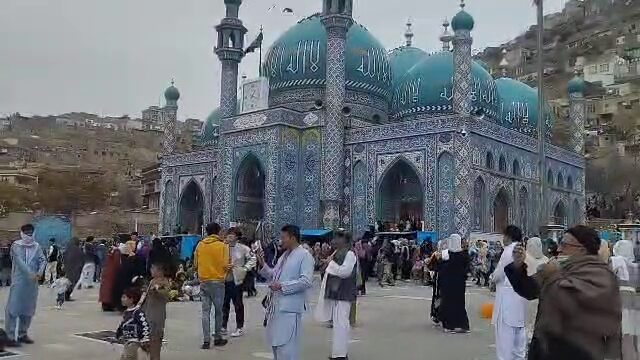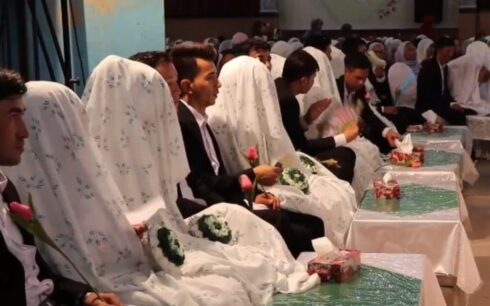Despite the Taliban’s restrictions on the official celebration of Nowruz, Kabul residents gathered at the Kart-e-Sakhi Shrine under tight security to observe the traditional Jahanda Bala ceremony, marking the new solar year.
The Taliban has ceased the official recognition of Nowruz, eliminating the national holiday that was traditionally observed. This year, as the new academic year commenced, schools opened on the first day of the solar year, contrasting the quiet that enveloped Kabul the night before. This silence marked the third consecutive year that Afghanistan welcomed New Year’s Eve with subdued celebrations, as families prepared for the new year with the traditional setting of the Haft Mewa, or seven fruits, despite the ban on New Year festivities by the Taliban, citing them as contrary to Islamic teachings.
At the Kart-e-Sakhi shrine, however, some managed to partake in the high-jumping ceremony, overcoming the prohibitions. Yet, in recreational areas like the Chehelsoton and Babur gardens, the usual festive atmosphere of previous years was noticeably absent.
For many years, Afghans have celebrated Nowruz uniquely, involving customs like preparing Semnak (Samanak), Haft Sin, and Haft Mewa. Traditionally, the streets would be alive with dancing, celebration, and the purchasing of new clothes for children. However, the enthusiasm for public celebrations has significantly waned under the current regime.
One enduring tradition is the preparation of Samanak, a dish made from wheat germ, cooked slowly over several hours. Women and girls typically gather on New Year’s Eve to cook, play the tambourine, and sing, continuing to observe this tradition even in the diaspora, as seen with the Afghan Women’s Justice Movement members in Pakistan celebrating the eve of the new year.
In recognition of its cultural significance, UNESCO officially registered Nowruz as International Nowruz Day and a vital intangible cultural heritage in 2009. The United Nations General Assembly followed suit in February 2010, acknowledging Nowruz as an international celebration. Countries including Afghanistan, Iran, India, Pakistan, Uzbekistan, Kyrgyzstan, Turkey, Azerbaijan, Tajikistan, Iraq, and Turkmenistan have contributed to Nowruz’s registration with UNESCO, celebrating this ancient tradition that transcends national and cultural boundaries.





